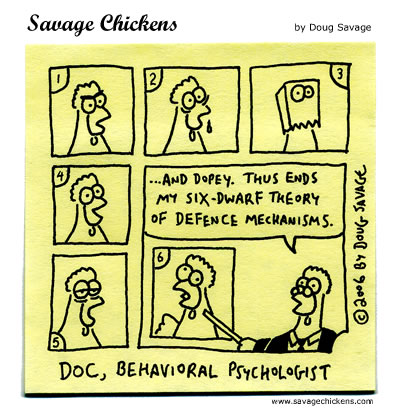
ORAL STAGE
In this stage, an infant’s mouth is the main source of interaction. That is why sucking and the rooting reflexes occur mostly at this stage. The infants depend mostly on the caretakers (who are responsible for feeding them), the infant also develops a sense trust and comfort through this oral stimulation. If fixation occurs at this stage then the child can have problems with dependency and aggression. The child can have problems with eating, drinking and nail biting.
In my case, I don’t think I was orally fixated to a grave extent. Although I would bite my nails till I was like 4 or 5 yrs old, I got rid of that bad habit and it wasn’t very difficult. I would blame oral fixation for my bad habit. By making me constantly aware of the dirt that was going into my stomach because of my nail biting habit, I slowly gave up the habit.
ANAL STAGE
According to Freud, the main focus of the libido is to control bladder and bowel movements. The major conflict at this stage is toilet training-the child has to learn to control his/her bodily needs. Developing this control is very essential.
Toilet training is mostly dependant on how parents train their children. Parents, who praise and reward their children for the use of the toilet on the right time, help their children feel productive and capable. Such an attitude encourages positive outcomes.
On the other hand, some parents ridicule and punish their children for accidents. This encourages negative outcomes.
If the parents are too strict with their children, anal- retentive personality can develop and lead their children to become very rigid and obsessive.
If parents are too lenient with their children then anal –compulsive personality can develop and lead their children to become very messy and unorganized.
In my case my parents would praise me if I would use the toilet at the right time. This encouraged me and I didn’t face serious problems at a later stage. I was kind of toilet trained when I was about 5 – 6 yrs old because my parents would encourage me to use the toilet before going to school so that I wouldn’t have to suffer in school. I was never forced or ridiculed, and this led me into not being too messy or being too rigid with my toilet habits. I can control my bodily needs.
PHALLIC STAGE
During this stage, the primary focus is on the genitals. Children begin to understand the gender differences. Boys begin to view their father as rivals for their mother’s affection. The Oedipus complex describes these feelings of wanting to possess the mother and the desire to replace the father. While the term Electra complex describes similar feelings in case of young girls. According to Freud girls experience penis envy.
He also believed that penis envy was never fully resolved and that all women remain somewhat fixated on this stage.
In my case I have been always close to both my parents but when I was really young I would be closer to my father than my mother. I never really experienced jealousy against my mother for my father’s affection.
LATENT PERIOD
This stage begins at the time when children go to school and get interested in their peers and their hobbies. In other words they become interested in relationships. In this stage a sexual energy is present but it is mostly directed towards social interactions and other goals and pursuits.
This stage really helps a child gain self- confidence to interact with his/her peers and be socially active. It helps a child develop communication skills.
I was quite an introvert till the 4th Grade and had only one good friend. But slowly I got out of my small cocoon and started making more friends. It all began when I stood 1st in my class and my drawing was chosen for the school magazine and because of this I got attention from my classmates. Since then nothing stops me from interacting with my peers and I am more of an extrovert. I feel confident socially and can easily discuss in conferences even with absolute strangers.
GENITAL STAGE
During this stage an individual develops strong interest in the opposite sex.The person begins to care about the welfare of others unlike earlier stages where the main motto was one’s individual needs. This stage helps the individual get a balance between various areas of life.
I remember the time when I would be really interested in knowing everything about the guys in my class. I would talk to all of them and I had more guy friends that girl friends. I still interact with the boys in my class but not obsessed with knowing everything about them, impressing them or even trying to act “cool” in front of them. As far as welfare of others in concerned I always try really hard to keep all my family and friends happy by trying to solve their problems, spending some quality time with them.
sources cited
Wagner, Kendra. .
Pictures
http://pixiestixkidspix.files.wordpress.com/2006/12/urban-babies-wear-plaid.jpg
 The psychodynamic perspective helped me reflect a lot on my childhood. We learnt about the different psychosocial and psychosexual stages in class but through this project we could reflect and recollect our incidents and relate to the theory. Now every time I look back in my past, I have a psychological reason and theory to relate and reason it with. It helps me look at life from a completely different angle.
The psychodynamic perspective helped me reflect a lot on my childhood. We learnt about the different psychosocial and psychosexual stages in class but through this project we could reflect and recollect our incidents and relate to the theory. Now every time I look back in my past, I have a psychological reason and theory to relate and reason it with. It helps me look at life from a completely different angle.









